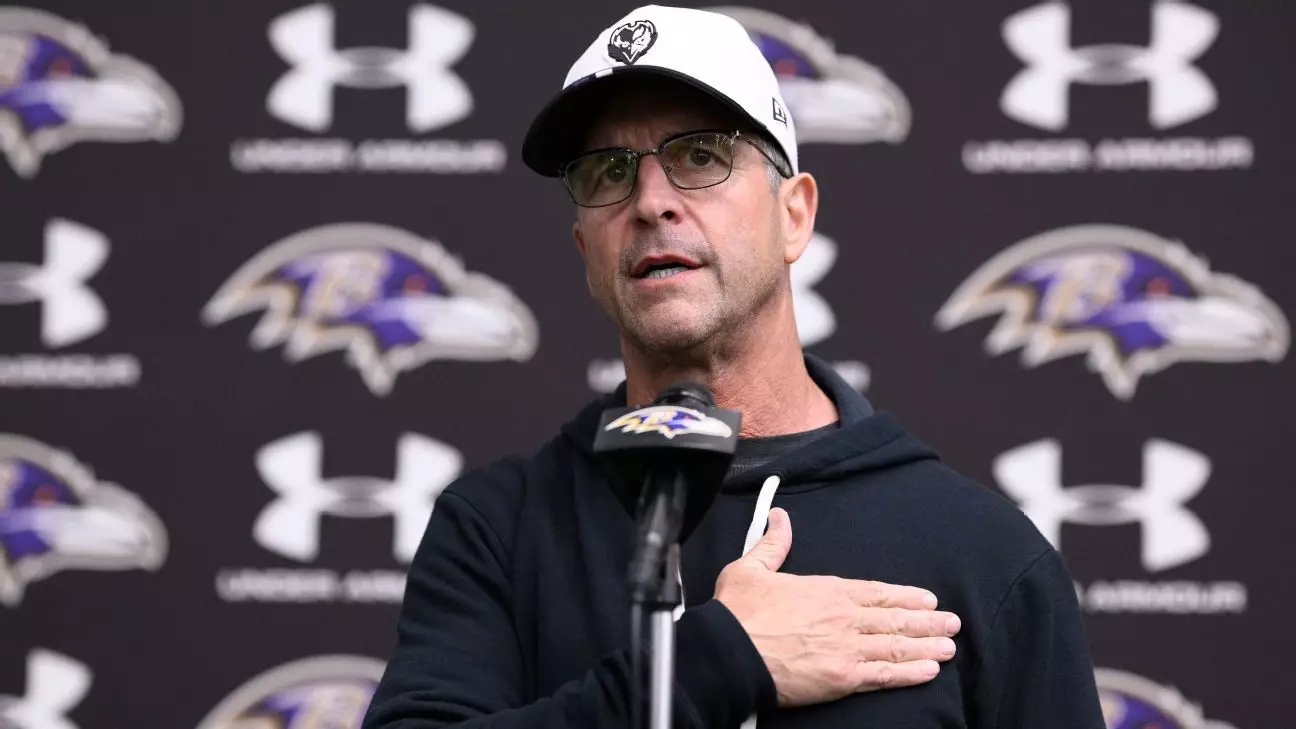The Bold Move: Ravens Part Ways with Legendary Kicker Justin Tucker
When news broke that the Baltimore Ravens had decided to release Justin Tucker, it felt like a seismic shift in the NFL world. Tucker isn’t just a kicker; he’s a legend in his own right, a name synonymous with reliability and precision. For me, as someone who grew up watching him nail seemingly impossible field goals, this news was both shocking and a bit bittersweet. The decision wasn’t just about numbers on a scoreboard; it was about the heart and soul of a team making a bold move for its future.
I remember the first time I watched Tucker play. It was one of those nail-biting games where every point mattered, and there he was, calm as ever, sending the ball soaring through the uprights. Watching him was always an exercise in trust; you just knew he would deliver. So hearing that the Ravens were letting him go felt like losing a piece of football history. Yet, it also made me reflect on how sports, much like life, is filled with unexpected changes and decisions that sometimes are necessary for growth.
This release isn’t just about moving on from a player; it’s about the team navigating complex challenges and prioritizing its future. The Ravens’ choice to part ways with Tucker involved deep considerations that went beyond his performance on the field. It’s a reminder that even legends have to step aside sometimes to make room for new beginnings. As fans, we can only hope that this leap of faith pays off for the team we love so dearly.
Key Takeaways
- The Ravens’ decision was influenced by various factors beyond on-field performance.
- Justin Tucker’s legacy remains as one of the most accurate kickers in NFL history.
- This move reflects the Ravens’ commitment to future success and ethical considerations.
- The transition to new talent marks a significant shift in team dynamics.
Evaluating Tucker’s Performance and Legacy
Justin Tucker has been more than just a player for the Ravens; he’s been an icon. Over his career, he earned seven Pro Bowl selections and set numerous records that highlighted his remarkable abilities. However, last season proved challenging, as he faced scrutiny after missing ten total kicks. His conversion rate fell to 73.3%, far from what fans had come to expect from him. This decline forced the Ravens to think deeply about their future at the kicker position, leading them to draft Tyler Loop as a potential successor.
This decision came shortly after the draft, signaling a clear intention by the Ravens to embrace change despite their long-standing history with Tucker. It was a gamble—choosing youth over experience—that could reshape their special teams unit significantly. By bringing in Loop and undrafted rookie John Hoyland, they initiated an open competition for the kicking role. This strategy not only reflects their forward-thinking approach but also underscores their willingness to innovate in pursuit of sustained success.
The Intersection of Ethics and Performance
The decision to release Justin Tucker wasn’t solely about his performance metrics; it was also heavily influenced by ethical considerations. The NFL’s investigation into serious allegations against him added layers of complexity to an already difficult situation. Despite Tucker’s strong denials of these accusations, calling them “unequivocally false,” the Ravens found themselves unable to proceed as usual under such scrutiny. In professional sports, personal conduct often weighs heavily alongside performance; this case proved no exception.
Coach John Harbaugh’s comments reflected how challenging this decision was for an organization striving to maintain its integrity while focusing on team performance. In today’s world, where public opinion can swiftly influence reputations, the Ravens understood the necessity of making decisive moves—even if it meant parting ways with a beloved player like Tucker. It’s a stark reminder for athletes everywhere: off-field actions can significantly impact their careers regardless of their contributions on game day.
Preparing for Uncertainty
With Tucker’s departure creating waves throughout the organization, preparing for an uncertain future became paramount for the Ravens coaching staff and management alike. Handing over such an important role within their special teams unit posed significant risks; after all, replacing someone as seasoned as Tucker is no easy feat when turning toward untested rookies instead.[CONTINUE FROM HERE]


Leave a Reply